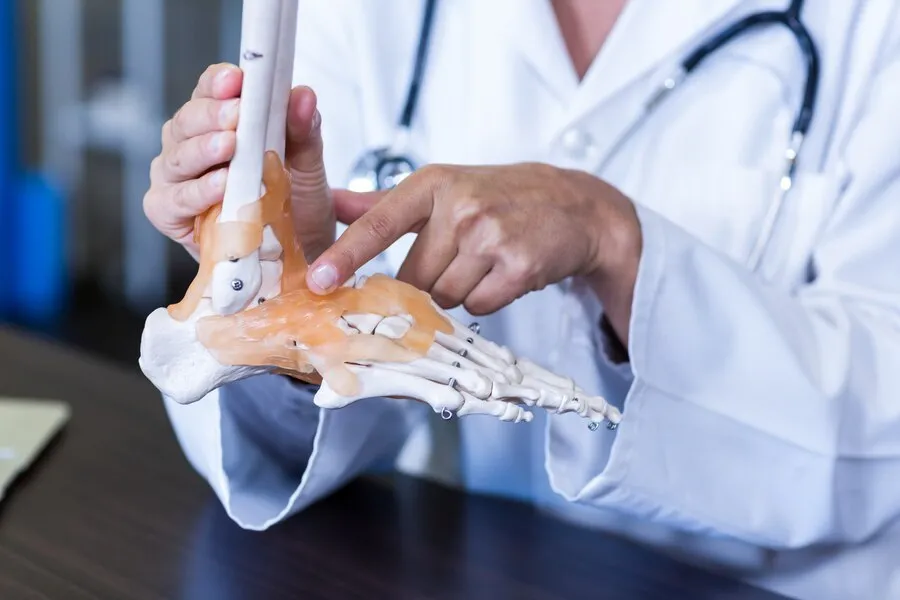Table of Contents
Key Takeaways:
- The critical role of preventive dental care in ensuring long-term oral health and well-being.
- The potential for significant financial savings through consistent preventive practices.
- The transformative impact of technological advancements in dental care delivery and efficiency.
- The vital connection between oral and overall physical health emphasizes systemic benefits.
- Guidance on creating a personalized dental care plan tailored to individual needs and lifestyles.
- Addressing and dispelling common myths surrounding dental care for improved understanding.
Introduction
In the modern healthcare paradigm, oral health is significant in the overall health portfolio. As we progress, the emphasis on preventive dental care continues to grow as a cornerstone for ensuring a healthy smile and systemic health. Preventive care involves a proactive approach, managing potential problems before they become significant. Such measures include regular check-ups, consistent oral hygiene practices, and informed lifestyle choices. With technological advances and comprehensive plans, such as FEDVIP dental plans, individuals are better equipped to maintain optimal dental health, saving on costs and avoiding complex treatments over time.
Importance of Preventive Dental Care
Preventive dental care is not just about avoiding cavities and ensuring clean teeth; it is a holistic approach to maintain and enhance oral health throughout one’s life. Regular routines like brushing twice daily, flossing, and visiting your dentist for standard check-ups form the backbone of preventive dental care. Such practices help control plaque, a sticky film that coats teeth and gums and is a primary cause of tooth decay and gum disease. Additionally, fluoride treatments and dental sealants may be recommended as routine care for additional protection against decay. A well-structured preventive regimen can minimize the chances of requiring more extensive procedures in the future, thereby conserving dental health and considerable resources.
Economic Benefits of Dental Health
One of the often overlooked advantages of preventive dental care is its potential to deliver significant economic benefits. By maintaining regular dental visits and addressing minor issues before they escalate, patients effectively reduce their likelihood of needing costly and invasive treatments. For instance, the cost of routine cleanings and examinations over the years can be significantly less than that of treating advanced periodontal disease or replacing a lost tooth due to neglect. This financial wisdom extends beyond individual savings and positively impacts the broader healthcare system by reducing overall costs associated with untreated dental conditions.
Also Read: Innovative Advances in Dental Technology You Should Know
Technological Advancements in Dental Care
The field of dental care has witnessed transformative changes due to rapid technological advancements, making procedures more precise and patient experiences more comfortable and efficient. One such innovation is digital imaging—digital X-rays provide high-resolution images with lower radiation exposure, enhancing diagnostic accuracy. Other innovations like CAD/CAM (Computer-Aided Design and Manufacturing) technology enable the creation of dental crowns on-site, reducing the wait time for the final restoration. Additionally, advances in laser therapy have introduced pain-free alternatives to traditional drills. Such developments improve treatment outcomes and encourage more people to pursue regular dental visits due to reduced anxiety and increased convenience.
Connection Between Oral and Physical Health
Numerous studies and medical findings support oral and overall health interconnection. Poor oral hygiene can contribute to a variety of health issues, including heart disease, diabetes, respiratory illnesses, and adverse pregnancy outcomes. The mouth, often viewed by health professionals as a mirror to the body, can host bacteria that reach other body parts, exacerbating existing conditions or inciting new ones. Maintaining good oral health not only focuses on preventing dental diseases but also plays a critical role in maintaining overall physical wellness and improving quality of life. The integral bond between oral and systemic health unfolds as research evolves, underscoring the necessity for routine dental care.
Creating a Personalized Dental Care Plan
Personalization in dental care ensures that each individual receives treatment tailored to their specific needs, lifestyle, and risk factors. Developing a personalized dental care plan starts with a dental professional assessing your oral health status, dietary habits, and environmental factors. Based on these evaluations, recommendations may include specific oral hygiene practices, frequency of dental visits, nutritional adjustments, and possible supplementation with treatments like fluoride or sealants. A personalized plan also guides lifestyle factors such as quitting smoking or reducing sugar intake, which is pivotal in preventing dental decay. Through collaborative goal-setting between the patient and healthcare provider, a tailored plan encourages sustainable, proactive care and enhances long-term health outcomes.
Debunking Myths About Dental Care
Myths and misconceptions about dental care can lead to inadequate practices and hinder overall oral health. For example, the idea that scaling (deep cleaning), wearing down teeth, or bleeding gums during brushing is a typical misconception needs correction. Proper education reveals that scaling does not harm teeth butt removes harmful tartar that can lead to periodontal diseases. Similarly, bleeding gums are a sign of inflammation—often indicative of gingivitis and not a healthy condition. Dispelling such myths positions individuals to make informed choices, enhancing their dental hygiene practices. Encouraging open communication with dental professionals can provide clarity and foster better routine care habits.
Final Thoughts
In summary, making informed and proactive choices in preventive dental care represents an investment not just for today but for a lifetime of health benefits. Through early detection, routine care, and the adoption of advanced technologies, preventive measures ensure a vibrant, healthy smile and contribute significantly to systemic health. By understanding and embracing these practices, individuals stand to save financially and protect their overall well-being. The transformation in dental healthcare highlights a future where coordinated efforts in preventive care become the norm rather than the exception. By demystifying dental care and focusing on prevention, we create pathways to healthier lives and communities.




